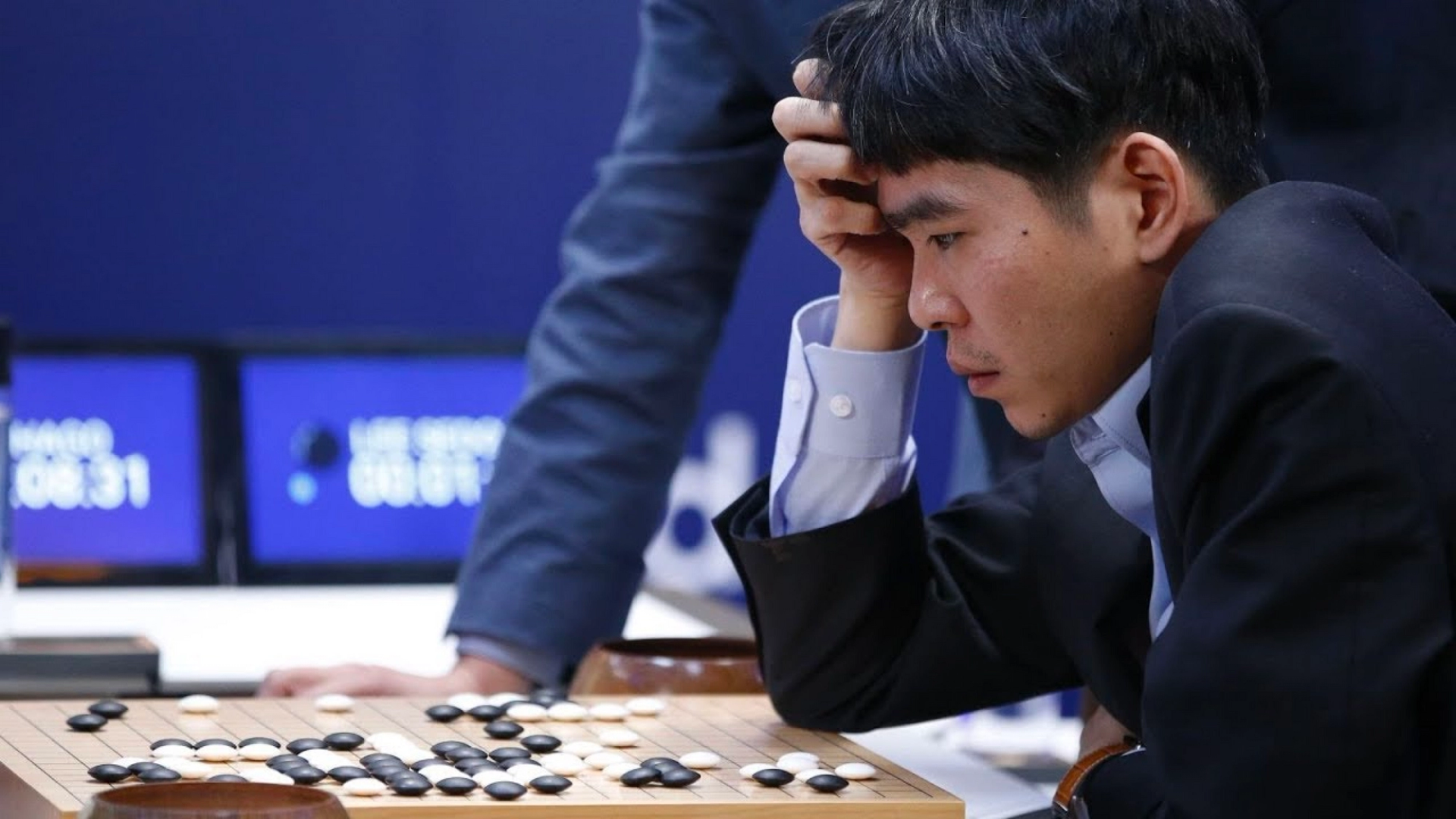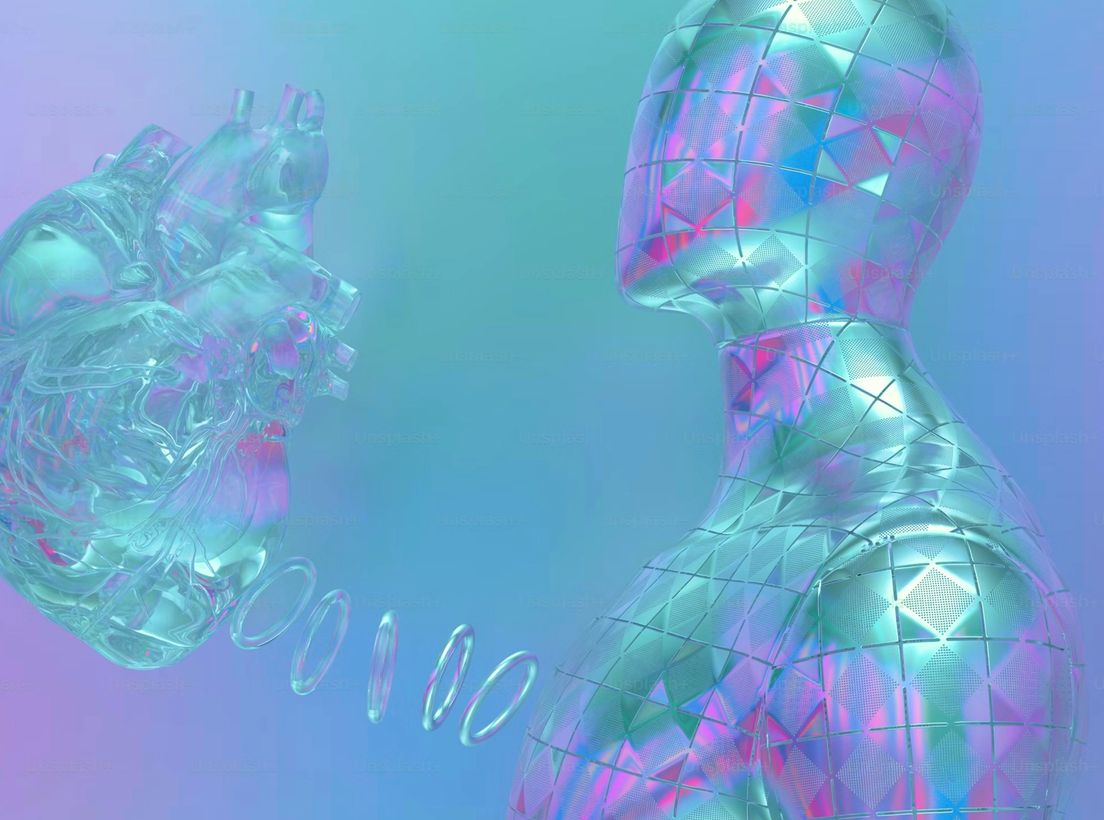An increasing amount of abilities that we consider to be ‘human’, can be done by Artificial Intelligence as well, and even better. What will this mean for us in the future? I actually believe that it can make humans not redundant, but more human.
In 2018, AlphaGo, a Google DeepMind AI that plays the board game Go, competed against top Korean player Lee Sedol, who had predicted before the game that he could easily win against AlphaGo. The reason Lee was so confident has to do with the amount of possibilities that exist in Go: more than the total amount of atoms in the universe. The game requires human creativity, not merely computing power.
AlphaGo had been trained through analysis of a huge amount of human-played Go games, plus numerous games it played against itself. However, the program could do more than simply recall the correct historical moves in the battle against its human opponent. In the now famous ‘Move 37’ of the second game, AlphaGo made what appeared to be a big mistake. Even the commentator, himself a top Go player, thought this was the end for the AI.

Speechless
But it gradually became clear that AlphaGo had discovered a new form of play, beyond human creativity. Lee was in shock: "Yesterday I was amazed," he told a journalist after the game, "but today I am speechless."
AlphaGo eventually won four of the five games and with them the championship. But Demis Hassabis and his team at Google DeepMind were not done yet. AlphaGo's successor, AlphaGo Zero, learned the game from scratch by playing only against itself and simply ignoring thousands of people's games over the past few centuries. In just three days, the program had become better than AlphaGo. Go, the game for which human creativity had to win out over brute processing power, was now the domain of machines.
The real world
After the heyday of Google's AlphaGo and IBM's DeepBlue, artificial intelligence that could beat grandmasters in Go and chess, things went quiet around AI for a while. The consensus was that it is one thing to win in the sandbox environment of a game with fixed rules, but quite another to outperform humans in the real world, where the rules are a lot less straightforward than in a game of chess or Go.
But since ChatGPT recently passed the Turing test and can now have intelligent conversations on a variety of topics, a new generation of philosophers and economists has emerged to consider what the impact will be when AI eventually evolves into AGI: Artificial General Intelligence.
Problems and concerns
This event, predicted back in the last century by Alan Turing himself and often called ‘the singularity’, will soon lead to AI that by far surpasses human intelligence. Some potential problems, such as the alignment problem, are fundamental: How can we be sure that the goals of a super-intelligent AI match the goals of humanity? After all, we already know from fairy tales that it is very difficult, if not impossible, to give instructions to all-powerful, non-human entities that are not going to work against us in the long run.
Others are specifically concerned about human misuse of the power of AI. For example, will generative AI soon create a flood of disinformation that drowns the truth? Will AI in weapons soon create ruthless killer robots?
Even if technology would only support us, economists are concerned that the introduction of AI will lead to the end of human economic utility. If an Artificial General Intelligence - with an emphasis on ‘general’ - can do everything better than humans, what is left for us to do?
Truly problematic?
It is necessary to realize the urgency and invest time in avoiding the existential problems that may be introduced by this new technology. After all, it is similar to and perhaps even more impactful than previous fundamental technological innovations, from the introduction of agriculture to the internet. It is the first time for technology to be introduced that does not compete with the things humans are not so good at - such as sensory perception, muscle strength or the ability to fly - but rather something that has given us our evolutionary edge: intelligence.
But is this really problematic? The future evolutions of AI, whether they lead to AGI or simply to numerous ‘narrow’ AIs that can take on individual, specific tasks, could provide a gigantic improvement in the quality of life for the entire world.
Online school the Khan Academy is experimenting with AI for personalized tutoring bots that work with teachers to give students personalized explanations. In the future, everyone in the world will have access to the best tutoring teacher in the world, in their own language. Already, AI is being used to shape cancer treatments based on an individual patient's DNA. In the future, the very best health care will be available to everyone.
By the way, this is not just a result of more intelligence: work is carried out in three areas simultaneously: biotech that enables intervention based on your DNA, AI that searches big data for the best outcomes for specific diseases and robotics that enables extremely detailed operations with limited input from human specialists.
On top of these kinds of applications for universal needs like education and health care - and continue with the list with the best lawyers, notaries, motorists, policy researchers, etc. - which are going to provide a massive democratization of knowledge, we can also expect several meta-problems with which humanity is now struggling, such as climate change, to benefit from endlessly scalable intelligence. For example, through the introduction of green technologies, climate modeling, and agricultural technology.
What's left for people
But what is left for humans to do when machines solve everything for us? Will we all become spoiled idlers, spending our universal basic income in the Metaverse? Or will we fall into a deep depression because we have nothing left to contribute that a computer can't do better? To answer that question, we must look at the other qualities that make us human and that an AI does not simply replace: our empathy, our creativity, our playfulness, and our competitive and innovative spirit. Just as we can use AI as a genius sidekick to make the world smarter and more efficient, humans can be the creative sidekick of the smart AI with our unique soft skills.
That universal super-smart tutoring bot is going to have much more impact if it works in tandem with an empathetic and kind teacher who helps children develop their social skills. That all-knowing AI doctor will still be supported by a human by your bedside to put a cooling hand on your forehead. And the climate solutions that can be devised through technology need a counterpart that brings morality to the discussion of how we should treat the planet.
And who knows, if we no longer need to be so occupied with brute intelligence, AI might enable us to further develop our humanity for the future.
Industry insights, company updates, and groundbreaking achievements. Stories that drive Hypersolid forward.


